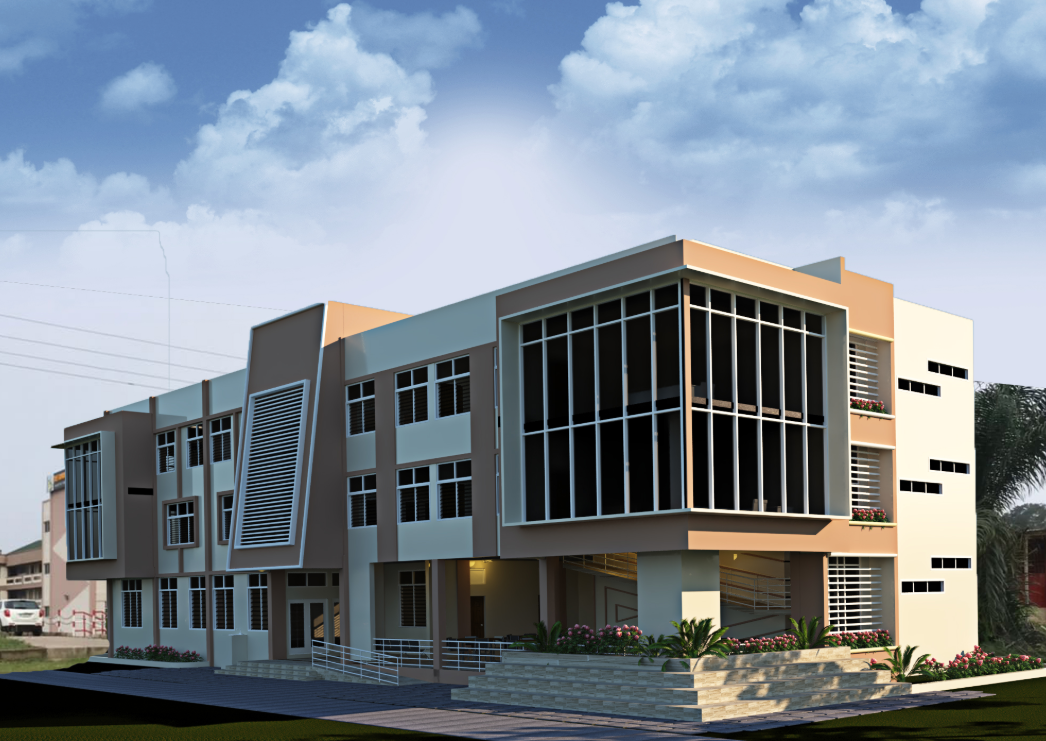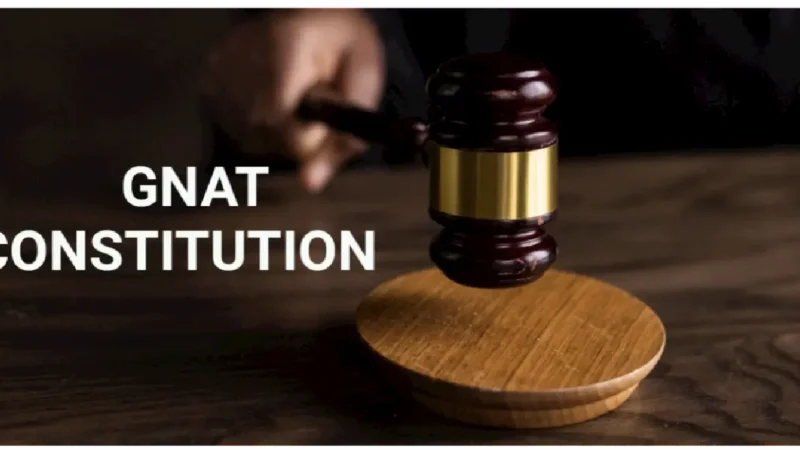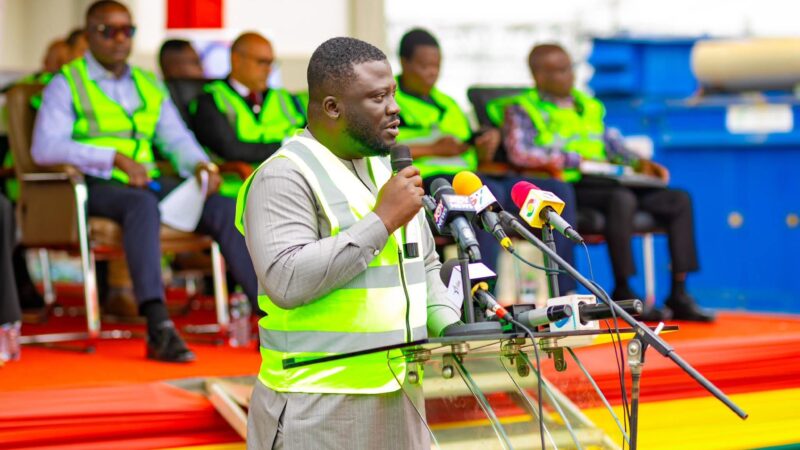The Ghana Chamber of Mines, through its Tertiary Education Fund (GCM-TEF), is set to construct a state-of-the-art Artificial Intelligence (AI) Robotics Centre at the University of Mines and Technology (UMaT) in Tarkwa, Ghana.
The Chamber will on Friday, cut sod for the construction of the state-of-the-art Mining Artificial Intelligence (AI), Robotics and Materials Testing Laboratory at the University of Mines and Technology (UMaT) in Tarkwa.
The landmark project, estimated at over US$860,000, forms part of the Chamber’s long-standing partnership with UMaT and seeks to strengthen research, innovation, and practical training in smart mining technologies. It will also serve as a national centre for materials testing for the mining, petroleum, and allied industries.
The facility will be housed in a three-storey building adjacent to the existing Ghana Chamber of Mines Faculty of Mining and Minerals Building on UMaT’s campus.
According to project details, the Materials Testing Laboratory will occupy the ground floor, while the AI and Robotics laboratories will be located on the upper floors. The project will be financed under the second tranche of the Chamber’s Tertiary Education Fund (TEF), with about 60 percent of the disbursement allocated to construction and equipment.
The Chamber will invest roughly US$860,000 in erecting the semi-green structure, while the remaining funds will be used to procure and install advanced testing and research equipment.
The AI and Robotics section will promote the development and application of intelligent mining systems, enabling students and researchers to design and build robots capable of performing complex mining operations such as drilling, ore transport, mine rescue, and particle size analysis.
UMaT as a national tertiary educational institution is focused on bridging the gap between theory and practice in technical education. The university has recently introduced courses in Artificial Intelligence, Machine Learning, and Advanced Programming, and is seeking accreditation to launch full undergraduate programmes in Robotics and Mechatronics Engineering.
Experts say integrating AI and robotics into Ghana’s mining sector could significantly enhance safety, efficiency, and data-driven decision-making, while reducing human exposure to hazardous environments.
Beyond robotics, the new Materials Testing Laboratory will provide comprehensive testing services for materials used in mining, petroleum, shipping, aeronautics, and manufacturing. It will offer testing capabilities in chemical, mechanical, thermal, electrical, corrosion, and non-destructive analyses to ensure the reliability of industrial components.
Currently, Ghana lacks a dedicated, accredited facility for such testing forcing many local industries to outsource these services abroad. The new laboratory will therefore serve as a one-stop national testing centre, promoting local content development, job creation, and the retention of technical expertise within the country.
Prof. Richard K. Amankwah, Vice Chancellor of UMaT, described the project as “a critical investment in Ghana’s technical future.”
“The collaboration with the Ghana Chamber of Mines will help produce industry-ready graduates capable of applying technology to solve real-world challenges in mining and beyond,”
– Prof. Richard K. Amankwah
Mr. Fred Attakumah, Chairman of the Chamber’s Tertiary Education Fund, said the project represents the collective vision of member companies to invest in the future of mining through education and research.
“By supporting UMaT to establish this AI and Robotics Centre, we are equipping young Ghanaians with the digital and technical skills needed to lead the next phase of Ghana’s industrial transformation,” he stated.
Ing.
Dr. Kenneth Ashigbey, Chief Executive Officer of the Ghana Chamber of Mines, called the project a “landmark step toward a smarter, safer, and more sustainable mining industry.”
“This is not just an investment in infrastructure — it is an investment in human capital and the intellectual foundation that will drive Ghana’s mining sector into the future,” he said.
The Chamber says its Tertiary Education Fund has already made significant contributions to academia and industry, and this latest project demonstrates its ongoing commitment to aligning education with industrial needs.
When completed, the Ghana Chamber of Mines AI, Robotics and Materials Testing Laboratory will stand as a pioneering facility in West Africa, reinforcing Ghana’s leadership in mining technology, research, and innovation.
Keep visiting GH Educate for more stories…




